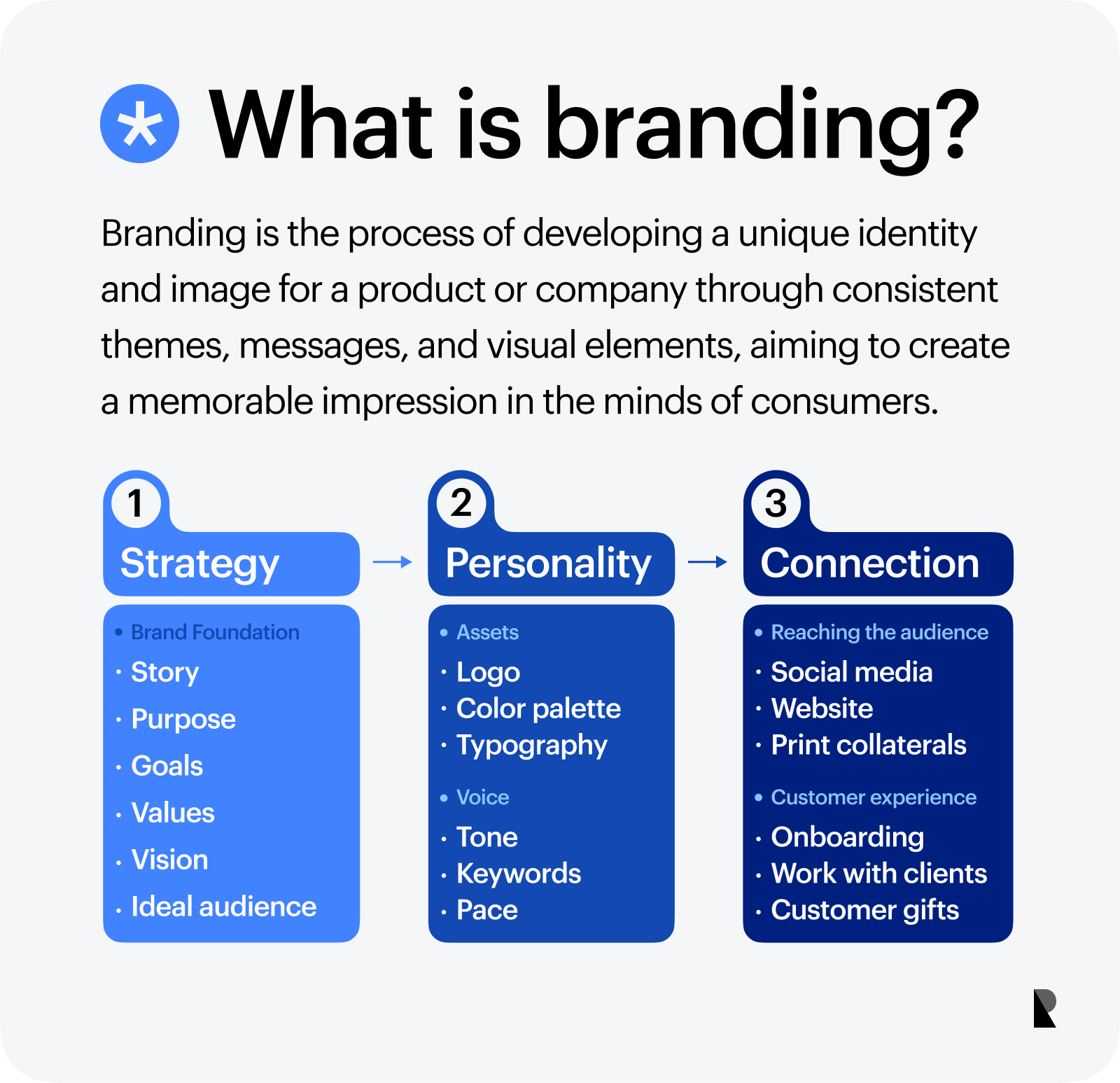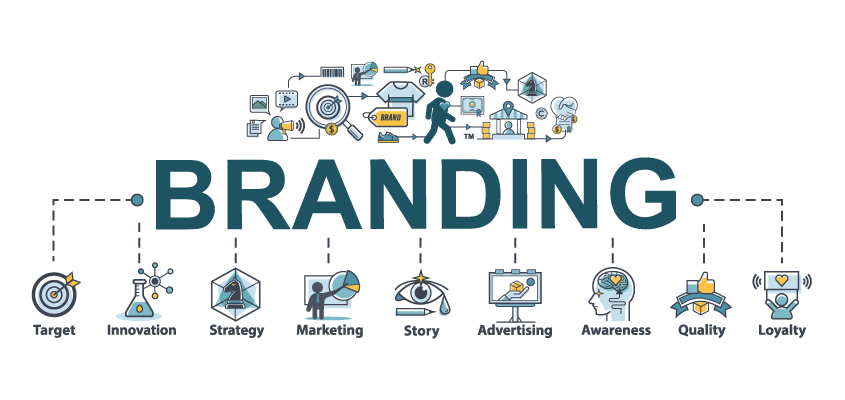How Robust Branding Contributes to Raised Market Share and Sales
How Robust Branding Contributes to Raised Market Share and Sales
Blog Article
Why Robust Branding Is Important for Market Leadership
In today's competitive landscape, robust branding becomes an essential component for accomplishing market leadership. A well-defined brand identity not only establishes a business aside from its opponents but also grows trust and psychological links with customers. These elements are important for fostering commitment and encouraging repeat company, yet many companies ignore the deeper implications of their branding strategies. As we explore the multifaceted nature of branding, it comes to be apparent that the stakes are high for those who fail to recognize its value fit long-term company success. What are the particular techniques that can elevate a brand to this well-regarded standing?
Comprehending Brand Identification
Consistently identifying the relevance of brand name identity is vital for any kind of organization desiring accomplish market leadership. Brand name identity incorporates the aesthetic aspects, messaging, and overall assumption that identify a business from its competitors. It serves as a structure for how customers communicate and regard with a brand, playing an important duty in shaping their assumptions and experiences.
A distinct brand identity connects the core values and mission of a company, creating a psychological connection with its target audience. Elements such as logo designs, color plans, typography, and intonation need to align cohesively to communicate a regular message across all platforms. This consistency enhances brand name recognition and fosters customer loyalty.
Additionally, brand name identity is not just surface; it mirrors the credibility and integrity of a company. It should be meticulously crafted to reverberate with the intended target market while remaining versatile to progressing market patterns. Organizations that focus on a solid brand name identity can efficiently differentiate themselves, construct a positive online reputation, and cultivate a loyal customer base. Eventually, a robust brand identity is vital for browsing competitive landscapes and maintaining long-term success.
Structure Client Trust Fund
A strong brand identification prepares for building consumer trust fund, an essential component in accomplishing market management. Depend on is not merely a psychological response; it is a tactical property that can dramatically influence buying decisions and brand loyalty. Firms that grow transparency, dependability, and uniformity in their messaging and actions cultivate a complacency amongst customers.
To build this depend on, brand names should deliver on their pledges. This indicates ensuring that item quality fulfills customer expectations and that solution experiences are responsive and favorable. Furthermore, regular communication enhances dependability; when consumers understand what to expect which their problems will certainly be addressed, their self-confidence in the brand name strengthens.
Social evidence likewise plays an important role in establishing count on. Favorable testimonials, reviews, and recommendations from legitimate sources boost a brand's online reputation and can persuade prospective clients. Engaging with customers via social platforms and addressing their concerns publicly shows responsibility and dedication.
Differentiation in Affordable Markets
In today's crowded marketplace, differentiation is essential for brand names seeking to stand out and capture consumer interest. With many alternatives offered, consumers are commonly overloaded, making it vital for brand names to develop an unique identity that reverberates with their target audience. This differentiation can show up with numerous aspects, including item attributes, pricing approaches, customer service, and brand messaging.
Reliable differentiation includes not only recognizing what makes a brand one-of-a-kind yet also connecting these see post differences clearly and consistently. Brand names have to express their worth suggestion in a manner that addresses particular customer requirements and preferences. A firm may focus on sustainability, innovative modern technology, or personalized consumer experiences to sculpt out a particular niche in a competitive landscape.
In addition, brands ought to consistently analyze their competitive environment to adjust home and improve their differentiation strategies. This aggressive approach ensures that they stay attractive and pertinent to customers as market dynamics evolve. Inevitably, durable branding that highlights differentiation not only promotes brand loyalty however likewise positions a business as a leader in its industry, paving the method for sustained development and market supremacy.
Psychological Links With Customers
Psychological links act as a powerful stimulant in structure long lasting relationships in between brands and customers. When consumers reverberate with a brand on an emotional degree, it fosters commitment that goes beyond mere transactional communications. Brands that successfully stimulate feelings-- whether through narration, shared values, or genuine engagement-- produce a sense of belonging for their customers.
These psychological ties can significantly affect buying decisions, as consumers are often driven by sensations as opposed to reasoning. A brand name that lines up with customers' addresses or aspirations their pain factors can cultivate a deep-seated commitment that causes repeat organization and favorable word-of-mouth references.
Moreover, emotional branding enables companies to differentiate themselves in jampacked markets. By using the beliefs of their target audience, brands can carve out an unique identification that reverberates deeply, making them remarkable and favored over competitors.
In an age where consumers are bombarded with options, a strong psychological link can be the deciding consider brand preference. Thus, focusing on emotional interaction is not simply an advertising and marketing method; it is a strategic important for brands seeking to develop meaningful relationships and improve client retention.
Long-Term Service Success
Sustainable business development hinges on the ability to cultivate durable branding techniques that reverberate with consumers in time. A solid brand not only sets apart a business from its rivals however likewise promotes loyalty and count on published here amongst customers. This long-lasting relationship is necessary for making certain repeat business, which dramatically contributes to earnings stability and development.
In an increasingly competitive marketplace, brand names that connect a consistent and clear message are much more likely to grow. This consistency reinforces brand identification, making it easier for consumers to recall and select the brand name over others. Robust Branding. Therefore, a reputable brand can adapt to market modifications without losing its core essence, enabling technology without alienating dedicated customers
Moreover, durable branding creates a system for consumer engagement, where services can collect comments and adapt their offerings appropriately. This iterative process not only enhances client contentment yet additionally constructs a community around the brand name, fostering a feeling of belonging.
Final Thought

Organizations that prioritize a strong brand identification can efficiently separate themselves, develop a positive reputation, and cultivate a dedicated consumer base.A strong brand identification lays the foundation for constructing consumer count on, a vital element in accomplishing market management. A strong brand not just separates a firm from its competitors but likewise fosters loyalty and depend on amongst consumers. As a result, a reputable brand can adjust to market changes without losing its core significance, enabling for development without pushing away loyal clients.

Report this page